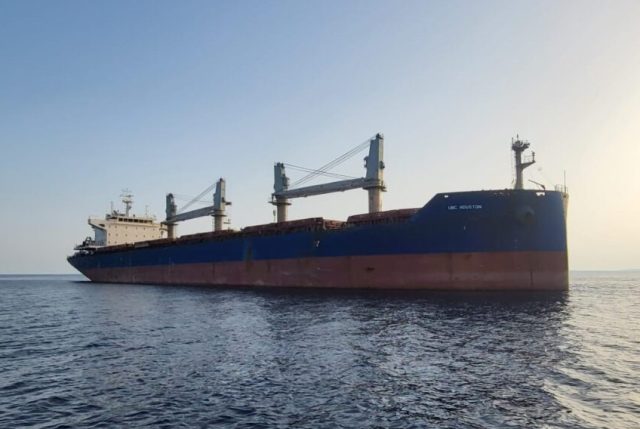Pelagic Partners is a company that has invested significantly in the global oil tanker industry through its Pelagic Fund I and Pelagic Yield Fund. This article will explore the benefits of transporting oil via the world’s oceans, as well as looking at the current boom in the global tanker industry.
Tankers are vessels that carry liquid cargoes in bulk. They are commonly used to carry oil and oil products such as petroleum, transporting the fuel necessary to meet the world’s energy needs.
Chemical and oil tankers are recognized by their characteristic long, flat decks. On top of a tanker’s accommodation is a network of ballast and cargo pipelines and vents. According to UNCTAD, in 2018 alone the global trade of refined petroleum products, crude oil, chemicals and gas topped a staggering 3.2 billion tons.
Tankers fall into several subcategories:
Oil Tankers
With the majority of the world’s oil and gas reserves located in just a handful of countries, tankers play a vital role in transporting refined petroleum products and crude oil to refineries and consumers all over the world.
Very Large Crude Carriers or VLCCs transport crude oil from countries where oil is extracted. It is then transported to locations where oil is refined and transformed into oil products. VLCCs typically have the capacity to carry anything up to 350,000 tonnes of crude oil.
Product tankers are much smaller vessels, with a capacity of up to 35,000 tonnes. These generally transport petroleum products such as petrol, lubricating oil, gas oil, and diesel from oil refineries to ports servicing industrial customers. Some product tankers are specially designed to carry chemical cargoes, incorporating specialist equipment such as corrugated bulkheads, complex piping systems, deep well pumps, and stainless-steel cargo tank construction.
Oil tankers play a vital role in the global energy industry, helping to safeguard the security of supply chains.
Chemical Tankers
Chemical tankers are used to transport a wide range of different industrial chemicals. Some are designed as oil and chemical tankers, meaning they can also transport clean petroleum products. Chemical cargoes can vary widely, ranging from sulfuric acid and caustic acid to many other types of cargo, including vegetable oil and palm oil. To mitigate safety and pollution risks, chemical tankers are designed, constructed, and operated to the highest safety standards, often incorporating stainless steel or specially coated cargo tanks.
Some chemical tankers are able to carry many different types of chemicals at the same time, a capability made possible by specially designed cargo arrangements, e.g., numerous small cargo tanks with dedicated piping arrangements to allow onboard systems to be subdivided. This enables many small parcels of cargo to be loaded, transported,and discharged separately without the risk of cross contamination between different types of cargo.
Chemical tankers play a crucial role in industrial supply chains. For example, caustic soda is a vital component in the processing of bauxite to produce aluminum.
Gas Carriers
Gas carriers transport liquified natural gas (LNG) and liquified petroleum gas (LPG). LNG and LPG are used in a variety of different applications in countries all over the world, from electricity generation and other industrial uses to cooking, heating, and transportation. Distribution of LNG and LPG contributes to the global energy supply chain.
Rising Profits in the Global Tanker Industry
While container shipping companies benefited from pandemic-related supply chain issues in 2021 and 2022, many are now reporting huge downturns due to economic slowdown and a huge orderbook of vessels, which will increase supply significantly.Meanwhile, oil transportation companies have been reporting a huge uptick in business since the summer of 2022, largely due to the global spike in crude oil prices caused by the war in Ukraine. Due to tough Wester sanctions as well as the need to avoid conflict zones, oil tankers have been forced to use different maritime routes. Maximized fleet usage and more time on the water carrying cargo have triggered a significant boom in the global oil transportation industry.
Other factors beside the war in Ukraine are also having an impact on the global oil tanker industry. In countries like South Africa, New Zealand, and Australia, where oil refineries were recently closed down, there has been a drastic increase in the volume of imports. In ports across Latin American today, it takes much longer for tankers to unload due to an increase in the volume of imports, mainly from the US. This has largely been triggered by uncertainties surrounding stricter environmental regulations that have yet to be finalized, creating huge uncertainties regarding green fuel.
Although there are other ways of transporting oil and petroleum products around the world, the global tanker industry remains the transport method of choice for oil producing countries and refineries, providing a cost-effective solution compared with inland carriers, enhanced flexibility, and huge capacity, while simultaneously reducing traffic congestion on roads.

